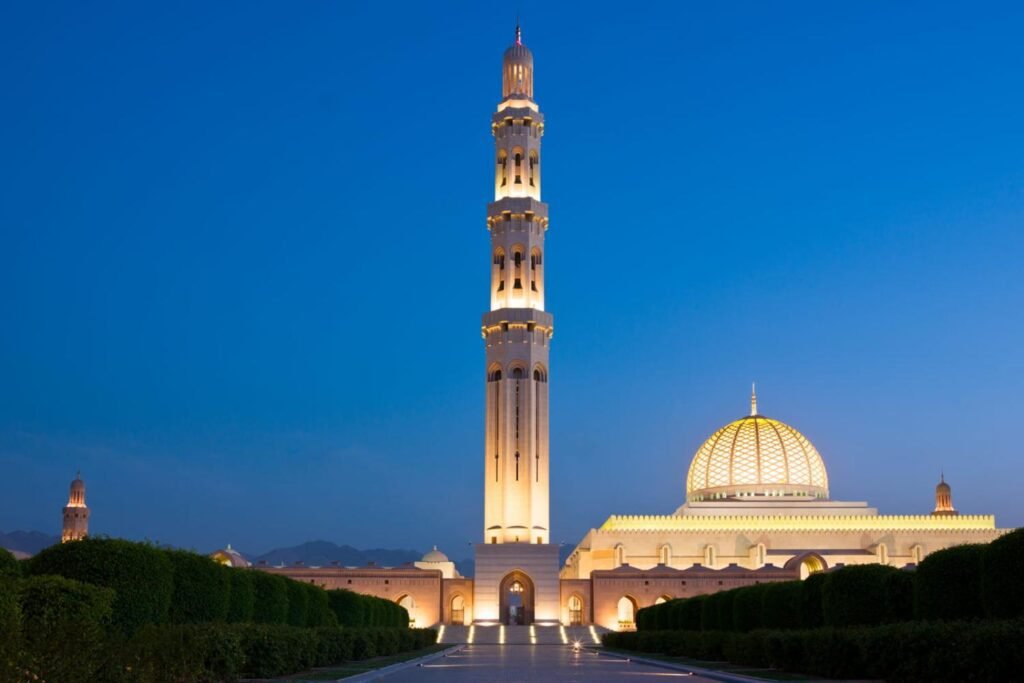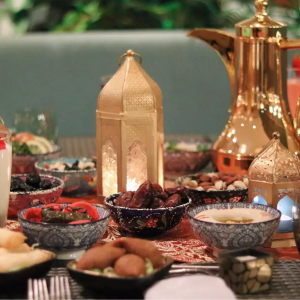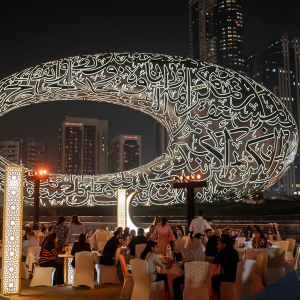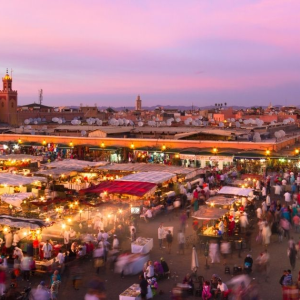In the complex world of global diplomacy, the choice of venue for negotiations often carries as much significance as the talks themselves. As the United States and Iran rekindle backchannel dialogue amid rising regional tensions, the selection of Oman as the preferred venue is far from coincidental. With its unique blend of geographical positioning, political neutrality, and historical credibility, Oman has emerged once again as the trusted mediator in a region marred by rivalry and mistrust.
But why Oman? What makes this small Gulf nation the go-to location for one of the most sensitive diplomatic engagements between two long-standing adversaries?
Let’s explore the deep-rooted reasons behind Oman’s pivotal role in the unfolding US-Iran diplomatic chapter.

A History of Quiet Diplomacy
Oman’s reputation as a neutral facilitator did not appear overnight. The country has earned this stature over decades through consistent foreign policy choices that favor balance, dialogue, and discretion. Unlike many of its Gulf neighbors that have taken sides in regional conflicts, Oman has historically avoided entanglements in alliances that pit Sunni against Shia, or Arab states against Iran.
It was Oman that helped broker the initial backchannel talks between the United States and Iran in the early 2010s—discussions that eventually led to the 2015 Joint Comprehensive Plan of Action (JCPOA), commonly known as the Iran nuclear deal. Sultan Qaboos bin Said, Oman’s late ruler, was instrumental in facilitating those discussions, often hosting secret meetings in Muscat before the negotiations became public.

This legacy continues under the leadership of Sultan Haitham bin Tariq, who has pledged to preserve Oman’s role as a peaceful bridge-builder.
Why Oman ; Geopolitical Neutrality
Perhaps Oman’s most vital asset is its political neutrality in a region defined by polarization. The Gulf Cooperation Council (GCC) is often divided along pro-Western and anti-Iranian lines, with Saudi Arabia and the UAE leading strong stances against Tehran. Meanwhile, Iran’s regional policies have caused considerable friction with Western powers and neighboring Sunni-majority nations.
In this context, Oman remains one of the very few countries that maintains cordial relations with both Washington and Tehran. This balanced diplomacy provides a safe and acceptable environment for dialogue, especially when both sides wish to avoid media scrutiny or political grandstanding.
By not taking sides, Oman offers something invaluable—trust. And trust, in international negotiations, is currency.
Strategic Location
Located at the mouth of the Strait of Hormuz—a critical maritime chokepoint through which one-fifth of the world’s oil passes—Oman is geographically central to Middle Eastern affairs. Its strategic importance has long made it an essential partner for global powers, including the United States.
Muscat’s ability to facilitate discreet, secure, and logistically feasible meetings adds to its appeal as a venue for diplomacy. Unlike Geneva or Vienna, which require long travel routes and potential media leaks, Oman offers proximity, secrecy, and security, all crucial for talks as sensitive as those between the US and Iran.
Moreover, its military and intelligence apparatus is considered competent yet discreet—further reinforcing Oman’s capacity to host negotiations of this magnitude.
Cultural and Diplomatic Sensitivity
Omani diplomacy is often described as soft-spoken, culturally sensitive, and rooted in Arab traditions of mediation. Unlike more aggressive diplomatic postures often seen in the region, Oman’s foreign service is known for its methodical and respectful engagement, whether with superpowers or neighboring states.
This cultural empathy resonates particularly well with Iranian officials who often seek dignity and mutual respect in international interactions. Omani diplomats are trained to navigate both Western protocols and Middle Eastern nuance, making them ideal intermediaries for complex dialogue.
Regional Tensions and Timely Mediation
The timing of the renewed US-Iran dialogue, and Oman’s involvement, comes at a critical juncture. The region is facing a boiling point: the Israel-Gaza conflict has intensified geopolitical divides, Iran has ramped up its nuclear enrichment activities, and US military assets in the region are increasingly under pressure due to militia attacks linked to Tehran-backed groups.
In such a volatile climate, open dialogue—especially one away from the glare of cameras and microphones—is essential. Oman provides a safe space for recalibrating relations without the expectation of immediate breakthroughs or concessions.
It is a venue where confidence can be rebuilt in increments.
A Signal to the World
Choosing Oman also sends a deliberate message. It signals to the international community that both the US and Iran are opting for pragmatism over posturing. By avoiding more formal venues like the United Nations or the European Union’s capitals, both parties demonstrate a preference for quiet diplomacy over media spectacles.
This also reflects a possible desire from Washington to re-engage Tehran without appearing to make major concessions—especially in an election year when foreign policy optics matter. For Iran, it signals openness to dialogue while still maintaining an image of defiance against Western pressure.
Beyond the Headlines: Broader Implications
Oman’s hosting of US-Iran talks is not just about solving one crisis—it’s about preventing many. As both nations recalibrate their strategies in the Middle East, Oman stands as a buffer that can prevent escalation into wider conflict.
Should these talks succeed in establishing a new understanding—whether on nuclear enrichment limits, regional de-escalation, or prisoner exchanges—it could reinvigorate broader diplomatic channels and reduce the likelihood of direct confrontation.
Furthermore, Oman’s continued role as a trusted interlocutor underscores the need for more neutral spaces in international relations—spaces that prioritize dialogue over dominance.
Final Thoughts
In an era marked by growing polarization and diplomatic fatigue, Oman’s reemergence as a venue for high-stakes talks between the United States and Iran is a powerful reminder of the enduring value of quiet diplomacy.
Its neutrality, strategic geography, cultural empathy, and historical credibility make it more than just a location—it makes Oman a cornerstone in the architecture of regional stability.
As the world watches closely, what happens behind closed doors in Muscat may not only shape US-Iran relations but also determine the trajectory of peace and conflict in the broader Middle East.
Do follow Uae stories for more Updates
Sudan Accuses UAE of Aiding Genocide at World Court Amid Two-Year Civil War Crisis












